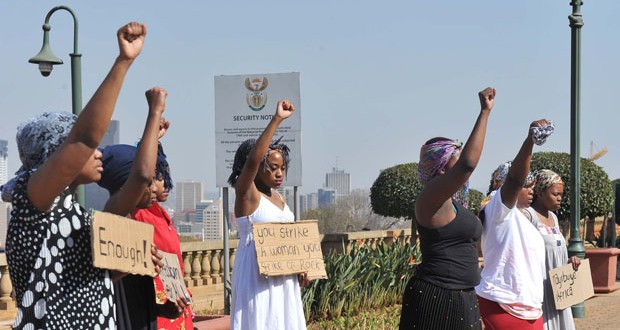THABISO BHENGU thinks that if Eusebius McKaiser wants to speak about intersectionality, he should give credit to the black feminists who conceived the idea. Â
While I was making breakfast earlier this week, a friend and writer – Simamkele Dlakavu – blurted out “I can’t believe that Eusebius is being applauded for what black feminists have been saying for decades and he did not reference them’’. I admit to having seen the article being shared and praised by many of my gay Facebook friends. Eusebius has done it again; he has brought common sense to prevail. Due to these contrasting narratives of grandeur and plagiarism about this piece – I read it.
In his piece titled: “Fight against domination not only black, white matterâ€, Eusebius allows the reader to be a voyeur in some remarkable conversation between him and a black lawyer. The black lawyer is very much aware of the criminalisation of blackness in the world; he is aware of how he would have to work ten times harder to be afforded the same privilege that could easily be given to a mediocre white (heterosexual) man. He, however, like many black men are unaware or refuse to acknowledge the benefits that one inherits simply for being male in this patriarchal world. There are also those of us who are aware of this privilege but cannot escape it because, like all privileges, you do not ask for it. It is there simply by the virtue of your existence.
Eusebius is well aware of this as he becomes the critical reflective voice in this conversation as he illustrates and constructs an idea of intersecting identities. To point to this, Eusebius argues “that we dominate one another on the basis of everything from race, gender, sexual orientation, language, ethnicity, place of birth, institutions, accent, bodies and countless other markers that become sites of daily oppression’’. I know this argument, it is not fresh. There is not even a slight addition or (re)imagination that has been added to his piece about intersectionality except a case study of a prejudiced black lawyer.
The concept of intersectionality has been around for decades in black feminist spaces in Africa, the African diaspora and the Global South. Notably, the concept gets named by Kimberle Crenshaw as intersectionality in 1989. The term is further explored by Patricia Collins in 1990 in her conversation about what makes black feminism unique to the plight of white middle-class women. Black queer women like Combahee River Collective have always been aware of how their race intersects with their gender and inevitably intersect with their queerness.
Constant visits by Ellen Khuzwayo to meet up with black feminist lesbian writer, Audre Lorde and other women, especially in 1992 in Berlin, to discuss the role of black women in the apartheid struggle and a way to position themselves in such a way that what was to be known as “rainbow nation” South Africa will not continue the discrimination that black women have faced in the struggle. The conversation between these women included concerns about the patriarchy in the African National Congress (ANC) and the marginalisation of queer black women in South Africa.
When queer black women of the One in Nine Campaign disrupted the Johannesburg Pride which was dominated by white gays in 2012 to demand the remembrance of black lesbians and trans people who are largely from poor and working-class backgrounds – that was the call for intersectionality. It was the embodiment and enactment of the theory that has guided black women across the Global South for generations. There are many intersectional moments that can be noted in history and there are also those that are undocumented and live on social media and our daily lives.
The most important history of intersectionality is how black queer women have experienced violence for these ideas and continue to do so. One need not look further to see this: the beloved ethnographic honey basket of unacknowledged ideas – social media – is proof. The way in which there is collective black unity against racists but the same urgency is not applied when black queer women like Motshidisi Pascalina are murdered because they are queer black women. For Eusebius to not reference the history of intersectionality is disingenuous. It violates the very same theory he is preaching.
Black men scholars not referencing women is a historical incident that is embedded in our misogyny, where the blatant hate of women manifests as stealing their ideas and making them as their own. I have also been guilty of that. It took a hard painful but necessary conversation with my friend Lebo Mashile to unpack this. I had tweeted about male privilege and cleanliness without referencing her. Our positionality as black gay visible men should be used in the service of the movement in ways that are genuine and truthful.
I also charge Eusebius of violating the same theory of intersectionality by a continual usage of ableist slurs to make his arguments in his work. This is also the case in this article where he uses the oppressive word “dumber”. He is a product of oppressive journalism in the country that refuses to see that there is no poetry in ableist slurs.










